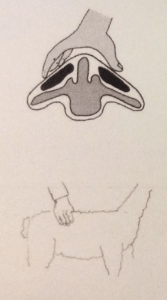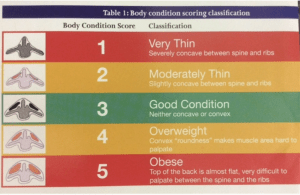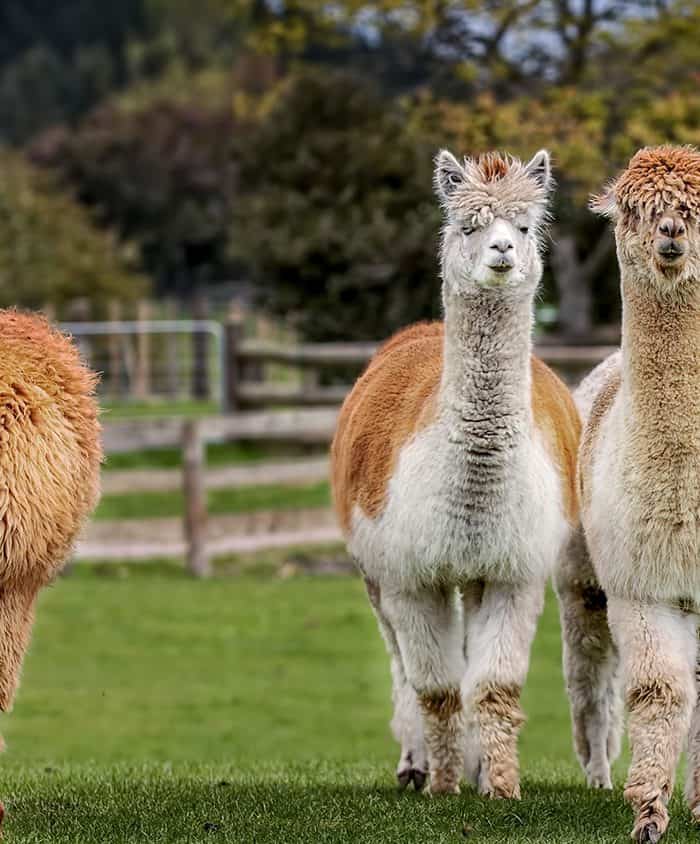Worming:
Advise worm egg counts every 6 months and treat accordingly. If worm egg counts aren’t possible for any reason then routine worming with Panacur or Cydectin (if you suspect haemonchus to be a problem) is recommended every 6 months.
Maximum stocking density is 7 alpacas per acre. It is important to have spare pasture so alpacas can be moved onto fresh, clean pasture so previously grazed pasture can rest.
Poo picking (every day if possible) is essential to keep pasture parasite free.
Vaccinations:
We vaccinate alpacas to protect against disease caused by species of clostriduim bacteria. The clostridial diseases you may have heard of are tetanus, botulism, pulpy kidney and blackleg. In crias we can start vaccination with ‘Lambivac’ as young as 2-3 days old with a 2nd vaccination 2-3 weeks from the first vaccination. A third vaccination is given at 4-6 months of age and then we move onto yearly boosters. ‘Lambivac’ or ‘Covexin 10’ can be used in adults but Covexin 10 is not safe in pregnant alpacas.
Coccidia Prevention:
Coccidiosis is a parasitic infection of alpacas. The cause of the disease is the infestation of the intestines by a parasitic protozoa. Coccidiosis is most commonly diagnosed in neonates and juveniles. Outbreaks generally tend to occur in the wetter months and be linked to stressful events such as weaning or herd movement. ‘Baycox Bovis 50mg/ml’ at a rate of 3mls per 10kg can be used in Autumn and Spring to help prevent this.
Liver Fluke:
Alpacas can also be affected by liver fluke. This parasite loves wet ground. Preventative treatment in Spring and Autumn is recommended if your grazing gets water logged and the weather predisposes. Fasinex at the same dose used for cattle (10mg-15mg/kg) works well.
Vitamin D:
South American alpacas are very susceptible to Vitamin D deficiency. Vitamin D is made in the skin by the action of U V light. The hours of sunlight in this country are greatly reduced compared to that in South America. Over the winter months (October -April) depending on the weather we use injectable ‘Hipravit’, 2mls for an adult and 1ml for a cria given subcutaneously (under the skin). This lasts for 6-8 weeks, so we normally repeat every 2 months over the winter.
Body Condition Scoring:
This is a useful way of assessing the general condition of your alpacas. It enables you to determine whether the alpaca is healthy or it can indicate a health problem. Every 2 weeks is ideal. Body scoring involves placing your hand across the centre of the alpaca’s back and assessing muscle coverage. See charts below:


